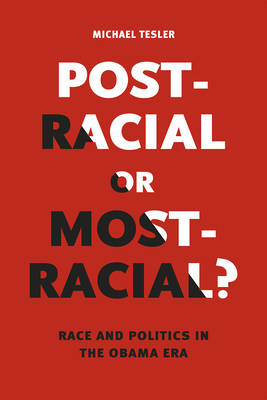
- Retrait gratuit dans votre magasin Club
- 7.000.000 titres dans notre catalogue
- Payer en toute sécurité
- Toujours un magasin près de chez vous
- Retrait gratuit dans votre magasin Club
- 7.000.000 titres dans notre catalogue
- Payer en toute sécurité
- Toujours un magasin près de chez vous
46,95 €
+ 93 points
Format
Description
When Barack Obama won the presidency, many posited that we were entering into a post-racial period in American politics. Regrettably, the reality hasn't lived up to that expectation. Instead, Americans' political beliefs have become significantly more polarized by racial considerations than they had been before Obama's presidency--in spite of his administration's considerable efforts to neutralize the political impact of race. Michael Tesler shows how, in the years that followed the 2008 election--a presidential election more polarized by racial attitudes than any other in modern times--racial considerations have come increasingly to influence many aspects of political decision making. These range from people's evaluations of prominent politicians and the parties to issues seemingly unrelated to race like assessments of public policy or objective economic conditions. Some people even displayed more positive feelings toward Obama's dog, Bo, when they were told he belonged to Ted Kennedy. More broadly, Tesler argues that the rapidly intensifying influence of race in American politics is driving the polarizing partisan divide and the vitriolic atmosphere that has come to characterize American politics. One of the most important books on American racial politics in recent years, Post-Racial or Most-Racial? is required reading for anyone wishing to understand what has happened in the United States during Obama's presidency and how it might shape the country long after he leaves office.
Spécifications
Parties prenantes
- Auteur(s) :
- Editeur:
Contenu
- Nombre de pages :
- 272
- Langue:
- Anglais
- Collection :
Caractéristiques
- EAN:
- 9780226353012
- Date de parution :
- 04-04-16
- Format:
- Livre broché
- Format numérique:
- Trade paperback (VS)
- Dimensions :
- 150 mm x 226 mm
- Poids :
- 385 g







